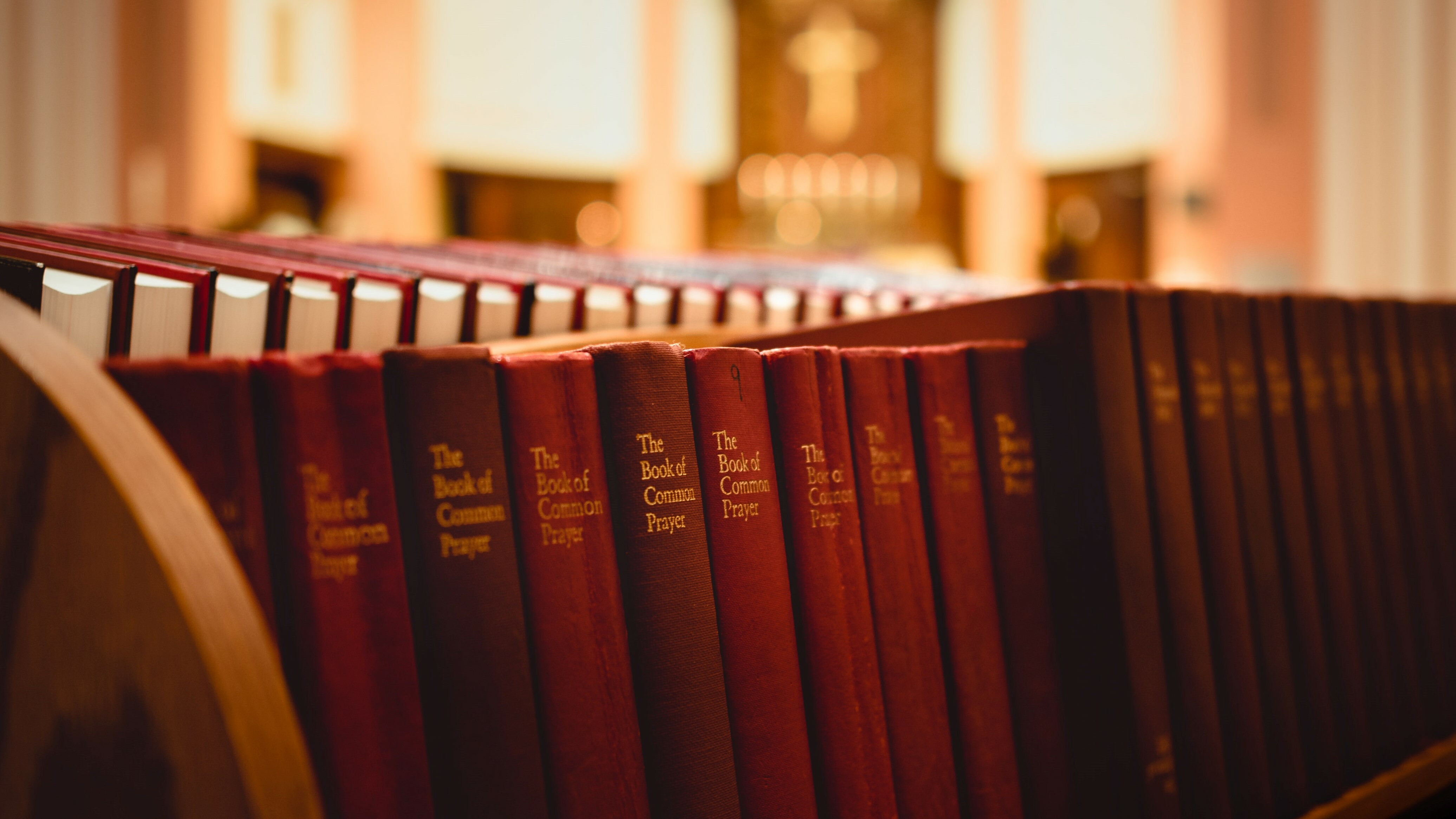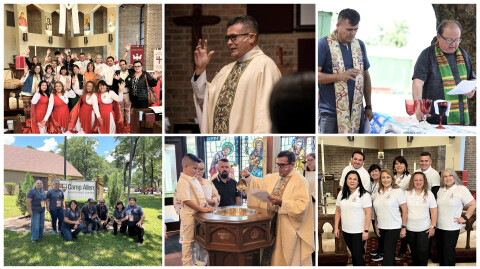This last April 24, I had the honor of being installed as the Fourth Rector of Saint Dunstan’s Episcopal Church by the Right Reverend Jeff Fisher. Even amid a pandemic, the ceremony gathered approximately 120 parishioners in this sacred act of commissioning. The service followed a pattern or liturgy developed by The Liturgical Commission of the Episcopal Diocese of Texas and Saint Dunstan’s was the first church to use this new service. We broke liturgical ground in the Episcopal Church.
The new liturgy departs from the 1979 Book of Common Prayer, where this celebration of new ministry was closely associated with the rite of ordination of priests and followed many of the same movements of that rite. This always seemed a bit strange to me. Why repeat so many of the elements of that ordination rite? According to Bishop Fisher, the Liturgical Commission of the national church published a liturgical supplement called “Enriching our Worship” about 12 years ago to correct the deficiencies of the rite. This supplement, however, moved too far in the opposite direction, placing all the attention on the congregation where the new Rector was to minister. We went from extreme to extreme: The 1979 BCP focused on the priest and Enriching our Worship focused on the congregation. In the new rite we celebrated this last Saturday, the focus is equally placed on the priest and the congregation. If you were unable to attend, please watch the recording on our website. For now, let me unpack the expression, “The Installation of the 4th Rector of Saint Dunstan’s Episcopal Church.”
“The Installation:” To install is to set something or someone in place. This is exactly what we have done. We have set the new Rector in the rightful place to which he belongs by calling and commission. What this means is that the Rector does not belong here just because he has chosen to be here. This is partly the reason, but others may have made a choice to be here and were not called. Only the person who was called has the right to be set in place. Only a Vestry fully authorized by a parish to select a new minister can make this call. The Search Committee recommends, the Vestry calls, and the Bishop commissions or installs.
Commissioning is a crucial element without which no priest can be set in place to be a Rector. In our Anglican tradition the Bishop is the shepherd of all the churches of the Diocese. He is the chief pastor, the liturgical head, the true and legitimate leader of each congregation of his Diocese. This is what the word Episcopal means. We are led by Bishops. Rectors draw our authority to lead a church from the Bishop himself, as extensions of his ministry in our context. Through the act of commissioning or installing of a Rector, the Bishop in fact says, “I hereby give you authority to act on my behalf here at this church. Today you become an extension of my love for Saint Dunstan’s. Share in my ministry and take good care of my people.” To commission means to “order for or authorize the production of something.” That is exactly what Bishop Fisher did. He ordered and authorized all the actions of prayer, service, befriending, teaching, and preaching involved in the task of pastoring a church.
“Of the 4th Rector:” This is a crucial part of the statement. By means of a call and a confirmation of that call via our Installation service, I became one of four people (not including our founder) drawn by God into ministry, ordained priests by a bishop, searched for by a committee, called by a Vestry, and instituted by a local Bishop. I entered this congregation in the middle of your story, and when my ministry concludes, that story will continue to unfold in accordance with God’s plans for this church. I join an unfolding plan for the salvation of the world, a plan initiated and overseen by God through his Son, in the power of God’s Spirit. In many ways then, this ministry is not about me doing something for you. Rather this ministry is about God using an imperfect tool to draw the people of Saint Dunstan’s to himself. At most, I am a traffic sign showing people where they can find the true Savior of the world. Being “the 4th” means that I stand among a great cloud of witnesses who came before me and whose love, hard work, and devotion made this place what it is. What we have today is the result of the legacy left to us by the lay and ordained leaders sent by God to lead you, guide you, and form you. I stand on the shoulders of giants and I must always be mindful that I am now reaping the harvest planted by others. While I do this, I will also plant seeds for others to harvest in the future. But neither the one who plants, nor the one who harvests, deserve the credit. The credit belongs to God himself, the giver of all life, the creator of all that is good, honorable, and beautiful.
“Of Saint Dunstan’s:” Priests promise in their ordination vows to participate in leadership in “The Councils of the Church.” The time may come when the Bishops ask me to participate in a commission or committee of the Diocese. Having said this, however, as the Rector of Saint Dunstan’s you are my priority and deserve most of my devotion, attention, creativity, and passion. I am “of” Saint Dunstan’s. This is both a geographical location as well as a group of people dispersed throughout North West Houston and Spring. My job includes the stewardship of all our resources and all our people. My job also includes those who do not yet belong. The “future Saint Dunstan’s” is a crucial part of the people you entrusted into my care. They are out there, and I must lead you all into a finding mission because we are not yet the church God called us to be. We need our neighbors to be completely ourselves. They too will need my commitment, energy, and devotion. To be “of Saint Dunstan’s” is a great honor and a holy commission. By making me “of you” you have given me permission to enter your story and to help you shape our future story.
“Episcopal Church:” We are members of the Jesus’ movement we call “The Episcopal Church.” This is both a great blessing and a great challenge. We have an incredible liturgy, a deep sacramental theology, an open-minded and generous theology, and a mission to join what God is doing in the world and for the world. Mission shapes who we are. We have a challenge to work for unity of spirit, to build a kingdom of peace and love, to honor each other and the world through service, and to build each other in all spiritual matters. As Episcopalians, we are members of the same family. This does not mean we wear uniforms and straitjackets. This does not mean we all think alike and behave alike. What it does mean is that our mutual love is more important than our political and theological opinions. It means that grace is more important than where we stand on the issues of the day. To be an Episcopal Church means to be children of the “Via Media” or “Middle Way.” We are historical centrists. We are generous and accepting. We are inclusive and respectful of the dignity of every human being. We are people in love with Jesus, the Christ, and as such, we are people called to love all whom Christ loves.
Thank you all for your beautiful welcome and your hospitality. I pray our mutual ministry will be filled with great blessings and growth.
Blessings In His Name,
Fr. Roman+





